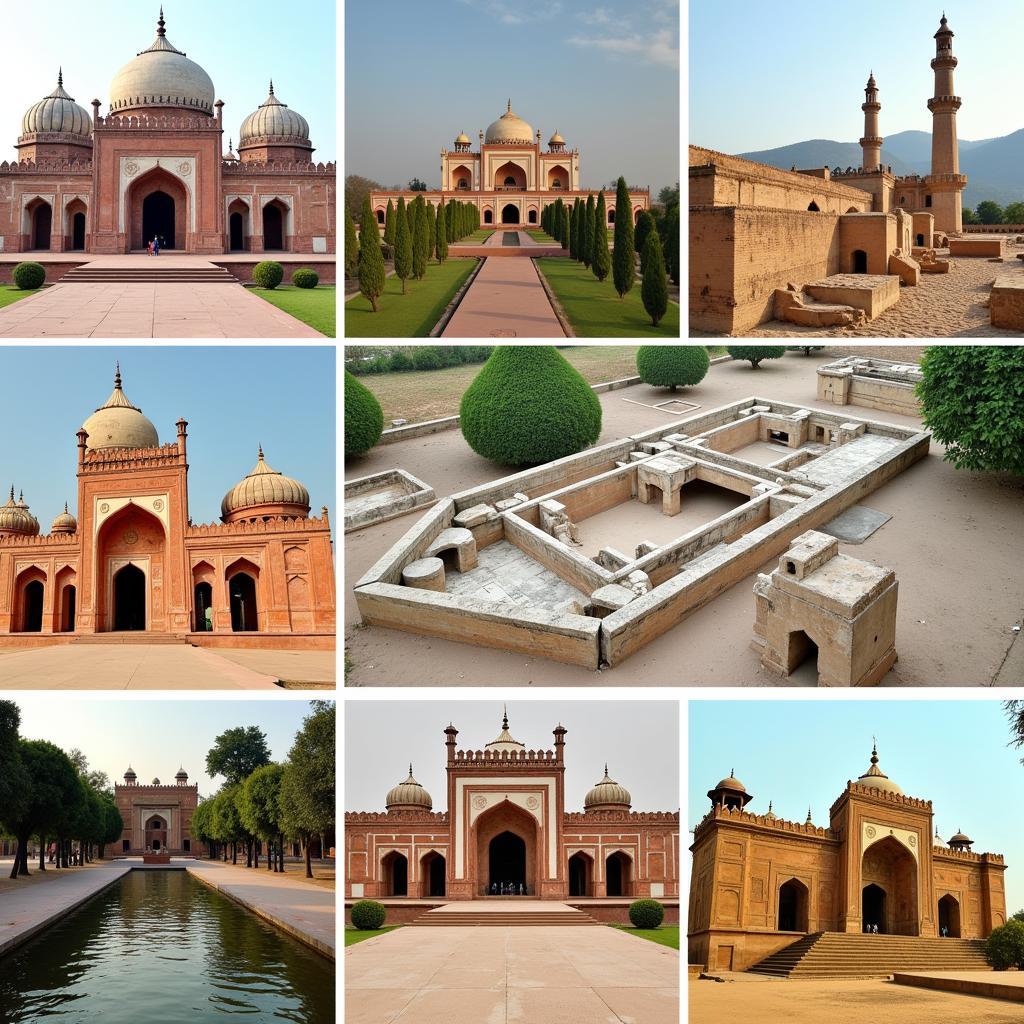Delving into the heart of South Asia, we embark on a journey through Pakistan’s rich tapestry of history, culture, and government, guided by the insightful work of Nigel Smith. From the ancient Indus Valley Civilization to the modern Islamic Republic, Pakistan’s story is one of resilience, diversity, and a constant search for identity.
 Iconic landmarks and monuments in Pakistan
Iconic landmarks and monuments in Pakistan
Unveiling the Past: A Historical Overview
Nigel Smith, in his seminal works, masterfully unravels the complexities of Pakistan’s past. He takes us back to the Indus Valley Civilization, one of the world’s earliest urban settlements, showcasing the ingenuity and sophistication of its people. We journey through the Mughal Empire, a period marked by artistic brilliance and architectural grandeur, leaving an indelible mark on Pakistan’s cultural landscape.
Smith does not shy away from the tumultuous events of the 20th century, including the partition of British India and the birth of Pakistan as an independent nation. He provides a nuanced perspective on the challenges and triumphs that shaped the nation’s destiny.
A Tapestry of Cultures: Diversity and Traditions
Pakistan is a land of remarkable cultural diversity, a mosaic of ethnicities, languages, and traditions. Smith eloquently captures this vibrant tapestry, highlighting the unique contributions of each group. From the Punjabis in the heartland to the Baloch in the west and the Pashtuns in the north, each community adds its own flavor to the national identity.
Music and dance play a pivotal role in Pakistani culture, with each region boasting its own distinctive forms. Smith delves into the intricacies of qawwali, a form of Sufi devotional music, and the energetic bhangra dance, highlighting their significance in expressing cultural identity.
Navigating the Present: Government and Politics
Understanding Pakistan’s current political landscape requires a grasp of its complex history. Smith provides a clear and concise analysis of the country’s system of government, exploring the challenges of democracy, the role of the military, and the ongoing quest for stability and progress.
He sheds light on the dynamics between the federal government and the provinces, examining the issues of devolution of power and regional autonomy. Smith also explores Pakistan’s foreign policy, its relationship with neighboring countries, and its role in the global arena.
Conclusion: A Nation in Constant Evolution
Pakistan’s journey, as depicted through Nigel Smith’s insightful lens, is a testament to the indomitable spirit of its people. From the ancient civilizations that laid the foundation to the modern nation grappling with the challenges of the 21st century, Pakistan continues to evolve. By understanding its past and present, we gain a deeper appreciation for this vibrant and complex nation, poised on the cusp of a new era.